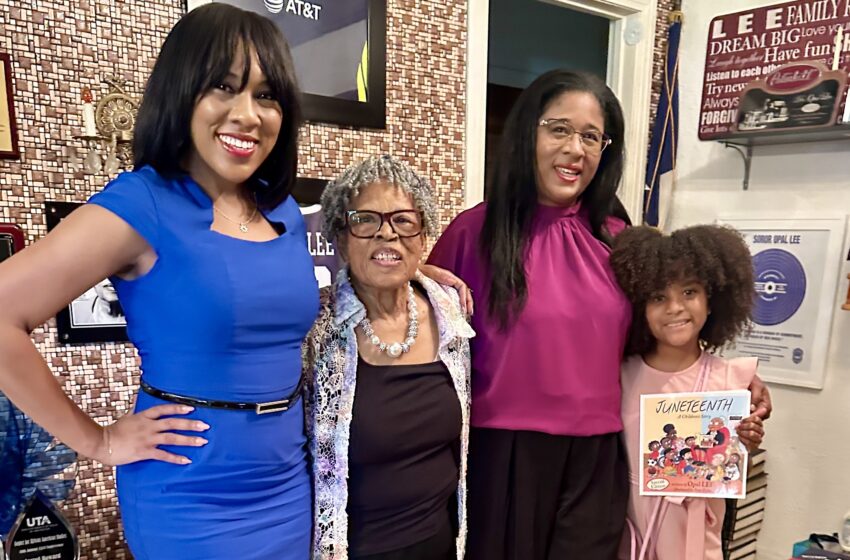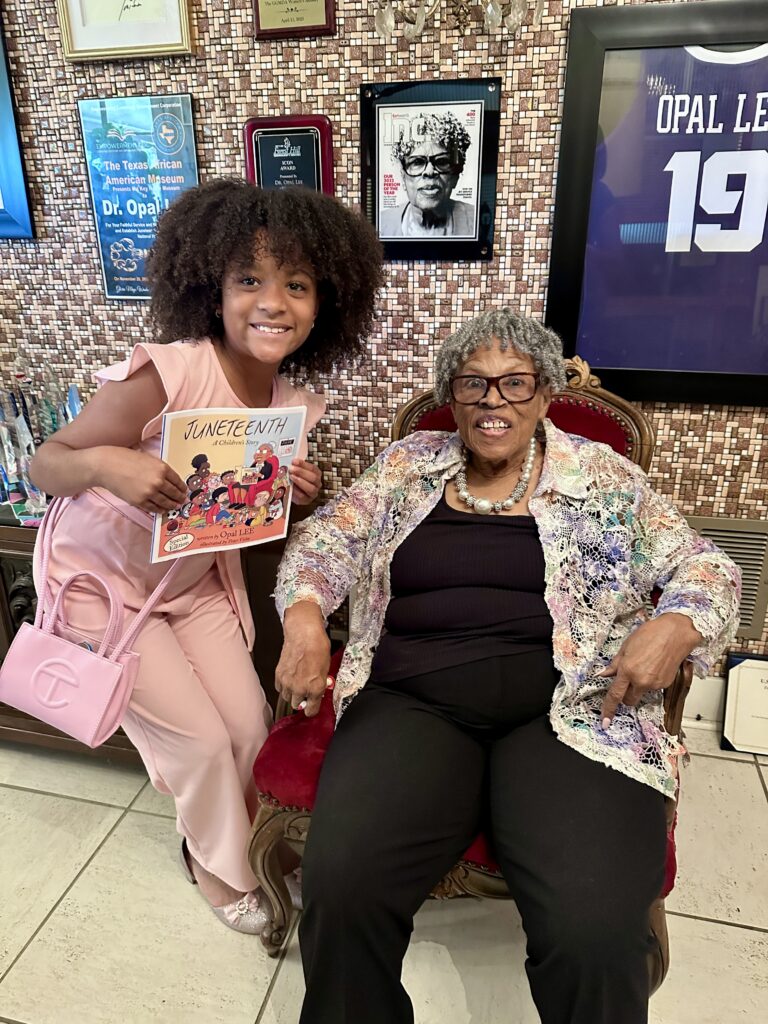Opal Lee: Reflecting on Juneteenth’s Past, Present, and the Promise of Freedom

(L-R) Ft. Worth, TX: Editor-in-Chief, (Dontaira Terrell), Opal Lee, Chief Operating Officer (Zakkiyyah Terrell White) and Creative Director (Aza White)
In the heart of Fort Worth, Texas, amidst the echoes of history and the whispers of progress, the Buckeye Review had the privilege of sitting down with Opal Lee in her home. At 97, the “Grandmother of Juneteenth” exudes a warmth that rivals the Texas sun. We talked about her life’s journey, including a childhood memory etched in pain—a burning house, a symbol of racial hatred. This incident sparked a lifelong fight for justice and fueled her unwavering spirit.

She credits her tenacity to her mother, describing her as a pillar of strength. Ms. Lee’s relentless advocacy, including the walk from Texas to the nation’s capital, made Juneteenth a national holiday. But it’s not an end. She opened up about her vision for a future where Juneteenth fuels education and action for racial justice.
Juneteenth, celebrated on June 19th each year, commemorates the end of slavery in the United States.
Though the Emancipation Proclamation, freeing enslaved people in Confederate states, was issued in 1863, it took Union troops over two years to reach Galveston, Texas, and inform enslaved people there of their freedom. Juneteenth became a symbolic day of liberation for Blacks in the state. In 2021, thanks in part to the tireless advocacy of Opal Lee, Juneteenth was finally recognized as a federal holiday. This hard-fought victory honors the historical significance of the day and serves as a reminder of the ongoing struggle for racial justice.
Notably, Lee’s dedication to Juneteenth was recognized in 2021 when she was awarded the prestigious Presidential Medal of Freedom, the highest civilian honor in the United States. Ms. Lee’s story is a testament to resilience, courage, and an unwavering belief in a better world. In her Fort Worth haven, she inspires generations to fight for a better tomorrow. As we delved deeper into the conversation, Opal’s spirit radiated with warmth and conviction, each word a testament to her unwavering dedication to the fight for equality. But what does freedom mean for the “Grandmother of Juneteenth?”
Our in-depth conversation with Opal Lee continues. Stay tuned for the next part of our interview.




